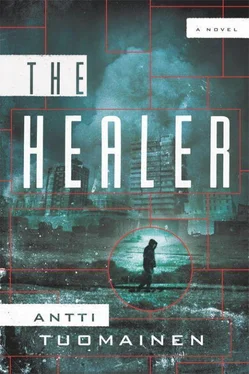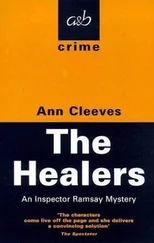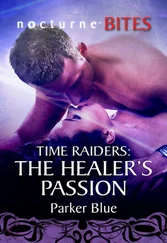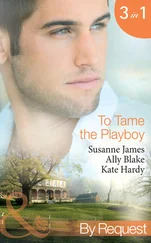The man fell to the ground, first onto his ass, where he sat with empty eyes and a bloody face, then onto his side on the asphalt as if lying down in bed for a nap. The younger man turned and walked to where a friend was standing, took his coat from him, and looked back. There was no triumph on his face, or any feeling at all. The whole episode had lasted less than thirty seconds. The two men walked off toward the railway station.
I continued on to the university. The small plaza in front of Porthania Hall was silent and deserted, which wasn’t surprising considering it was Christmas Eve and drizzling. The revolving door was still revolving, however, and I went inside.
I had called Laura, who had, of course, been surprised that I got in touch with her. Under the polite distance in her voice there had been a touch of alarm, perhaps even fear. I didn’t talk for long. As soon as she said that she was at her office at the university, and that there was a porter and a few professors working in spite of the holidays, for the physical and spiritual support of the students and for sheer scholarly tenaciousness, I said I wanted to come see her. All right, she said, after a moment’s silence.
Laura Vuola, the love of my life—twenty years ago.
I remembered clearly the first time we met, at the political science department Christmas party, on the fifth floor of the New Student House, Laura in her long-necked, wine-red sweater and dark lipstick, my amazement and triumph when she agreed to leave with me, the walk through downtown in the snow to her apartment—Laivurinkatu 37.
And I remembered the times I walked back to my place in Töölö after one of our arguments, the desolate, black winter wind tearing through the city. Laura had seen the truth quickly: I wasn’t ambitious, determined, or career oriented at all. If someone had told me that opposites attract, I would have told them the story of Laura and me.
I walked through the metal detector in the lobby, taking off my belt and shoes, like I did nearly everywhere I went, it seemed. A red-eyed woman handed them back to me and flicked her bleached hair away from her face without saying a word, then sat down in her chair and went back to playing a first-person shooter on her phone.
I climbed the spiral staircase past the cafeteria where, in another life long ago, I used to sit and talk, sometimes for hours, over a single cup of coffee.
The glass doors on the third floor were locked. There was a buzzer on the wall with a sign over it that said JUST PRESS IT ONCE—WE CAN HEAR YOU. I pressed the button once and hoped I would be heard.
Sometimes you do remember correctly.
Laura’s hair was still long, dark, and slightly curly, parted evenly in the middle and combed to either side of her fair, almost pale face. Her high cheekbones and slightly fuller than ordinary lips gave her face a sort of Mediterranean look, as did her brown eyes and long dark eyelashes.
Laura still seemed to be a proud riddle. I remembered very well how I used to want to solve that riddle.
“I don’t need to tell you that this is quite a surprise.”
Her voice was still low, echoing through the quiet stairwell.
“I’m not really sure what you need to tell me.”
“Should we start arguing right here at the door, or would you like to come in first?”
I had to smile.
“I didn’t come to argue,” I said. “Thanks for agreeing to meet me.”
Now Laura smiled. Her smile was wary, probing.
“Anyway, nice to see you.”
She showed me in and made sure the door was locked behind me.
She was dressed in the same timeless way that she used to be: an elegant gray sweater with a copious collar whose numerous folds hung in layers down her front, a long tweed skirt, and light brown high-heeled leather boots, which made her taller than I was.
She had an office at the end of the hall, its walls lined with shelves full of books, journals, and stacks of paper. There was a narrow window on one side that showed a slice of the wall of the building opposite. It was hard to believe that even an ambitious professor of literature could get anything out of a view like that.
Laura sat at her desk, her chair yielding to her as if taking her in its arms. I backed into the other seat in the office, an upholstered sofa that was the shortest I’d ever seen. Although we were as far away from each other as the office space allowed, the distance between us was a meter and a half, at most. She looked at me, her brown eyes open and curious.
“You’re a poet now.”
I didn’t answer right away. I looked at her and remembered how easy it was to just sit and stare at her, waiting for her to reveal the smallest opening into her secrets. Maybe there never were any secrets, except in my imagination.
“And you’re a literature professor. Just as you should be. You were always a wee bit more ambitious than I was.”
“You haven’t lost your sarcasm,” Laura said.
There didn’t seem to be any help for it. Her quick answers still left me at a loss. And there was something else. Looking at my long-lost love, I understood how much I yearned for my present one.
“I’m sorry,” I said. “I meant that I’m happy for you. Honest.”
“Thanks.”
She looked away.
“The youngest professor of literature they’ve ever had,” she said. “And a woman. It wasn’t easy.”
“I’m sure it wasn’t,” I said.
“You’ve got to have strong elbows,” she said. “But I’m sure you remember that. Strong, sharp elbows. Literally.”
I showed with my smile that I did remember, not letting my face show even a trace of how painfully. I had already noticed the diamond ring on her left hand. I nodded toward it.
“You’re married.”
She didn’t look at the ring.
“Samuli died a year ago. Tuberculosis.”
“I’m sorry.”
“We have a son, Otto. He’s thirteen.”
“That’s wonderful. Congratulations.”
Were all meetings after a break of twenty years this tense, this full of traps and land mines? Laura looked at me again.
“So you really became a poet,” she said.
“After some setbacks.”
“Unfortunately, I haven’t…”
“That’s all right,” I said. “Neither has anyone else. They only came out with a couple hundred copies. The kinds of books that have a small audience. And it was before all this.”
We sat quietly for a moment.
“Have you ever thought about what it would have been like if things had been different?” she asked, taking me completely by surprise. I shrugged.
“Different how?” I asked. “Between us, or in general?”
“In all ways,” she said. “Completely different. If everything had had a happy ending.”
I looked at her. Was I understanding her correctly? Was she doubting the choices she’d made? If she was, then this was a Laura I’d never met before.
“I don’t know,” I said. “Maybe this is the happy ending.”
“Maybe it is.”
“Laura,” I said when I saw that she was sinking deep into her thoughts, “I have something important I want to talk with you about. My wife has disappeared. You may be able to help me. I’m looking for a man named Pasi Tarkiainen.”
A pair of furrows appeared on her brow and her full lips turned down. It was an expression I remembered.
“I don’t quite understand,” she said, as I had expected she would. “Has your wife gone somewhere with Tarkiainen?”
I shook my head and realized that I was doing it much more patiently than I would have twenty years earlier.
“If she did, she didn’t go voluntarily. You remember him, then?”
“Who doesn’t?” she said, and immediately sounded uneasy. “Everybody remembers Pasi Tarkiainen. He was a charismatic young student and environmental activist. Extremely opinionated and, I have to admit, extremely attractive. In retrospect, he was right about the seriousness of the situation, but his methods…”
Читать дальше












